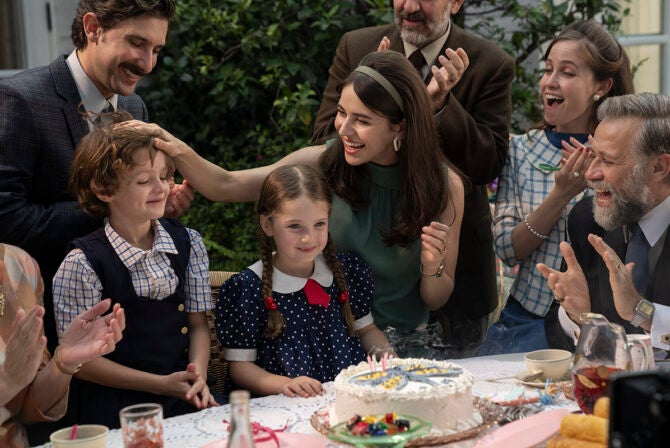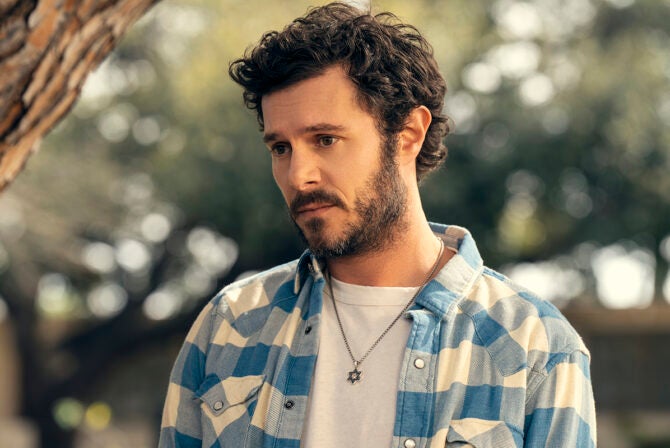I think I may be missing the point.
I’ve been reading up on attachment parenting and caught Dr. Sears on TV the other day. Besides the fact that “attachment mothering” seems a more apt description, most of what it describes seems fairly sensible, if, to my way of thinking, not absolutely necessary. Looking back, I guess I practiced most of this method without calling it AP, or even knowing of such a thing 20-plus years ago. This method of parenting infants fit my style and value system and I was home full-time. I did hold my babies when they seemed to need holding, tried to learn to understand their cries, breastfed, co-slept (it was so much easier for night feedings), and didn’t let my infants “cry it out at night.” Heck, I even used cloth diapers through 3 ½ kids!
On the other hand, I did put them in cribs and bouncy seats–it was impractical for me to carry or wear them all the time. (And I was terrified when I used the front carrier that I would trip, fall, and crash my baby’s head into the concrete sidewalk.) Since I am philosophically opposed to my being in pain, I insisted on epidurals for labor and delivery.
I mean, to me, AP sounds sensible if we are talking about infancy, the first few months of the baby’s life. It sounds sensible if you are very privileged and don’t have to go out to work to afford a decent place to live, healthy (maybe kosher) food, clothes, a car if you live outside of a city, and yeshiva day school education if that is essential (as it was for my kids.)
So I am sympathetic to the AP style but I am absolutely sure that it is not right for all moms and babies and that no one should feel guilt or shame for rejecting Dr. Sears and his questionable scientific claims. (A big hug to you, Carla!) I also know that an unhappy mother means an unhappy child.
This is what I don’t get:
Is someone who must or wants to leave the house to make money, get an education, or volunteer in the community not as good a mom as an AP mom who has a baby attached 24/7?
What do you do about your other kids who also need you if you are always concentrating on the baby or toddler?
Although Mayim is quite eloquent, reasoned, and calm discussing the subject, the infamous TIME Magazine cover’s depiction of an angry, smug, defiant mother does reflect the way many of us receive the AP message. Do AP moms feel like Mayim does or like the woman in the photo seems to? Is there really enough room in the AP bible for understanding and respecting those who parent differently?
Is breastfeeding really essential to a child’s health? I am unconvinced. The vast majority of us baby boomers were bottle fed. As a group, we will live longer, and in better health, than any previous generation. And we certainly demonstrated empathy (a key word, it seems, to AP) by bringing down a government during the Vietnam war and marching for civil rights for African Americans, women, and gays. Our good health and longevity is despite baby formula–not to mention all the sex, drugs, and rock and roll. (My own anecdotal experience is of nursing kids who had as many, if not more, respiratory and ear infections than anyone else on the block.)
How do you make sure you have enough time and energy for your partner to sustain that primary and essential bond? (I am not talking about the sexual relationship here–OK, sex in the kitchen can work, I guess.)
Is it important for a woman to preserve a sense of physical autonomy and privacy?
Can it be said with any degree of certainty that any one parenting method is causally related to a particular result? Aren’t there just too many variables?
Is it really a good idea to do nothing but concentrate on the baby? Is there no room for professional, educational, volunteer or other commitments? Do “attachment parents” lead balanced lives that contribute to their own mental health?
Aren’t we all just trying to raise decent self-actualized human beings who we will be proud of and who will contribute to society in a positive way? Aren’t there different ways to do this?
Do those who don’t practice “attachment parenting” practice “detachment parenting?”
When your identity is so defined by your relationship to your child, and your AP child grows up, do you remember who you are?








